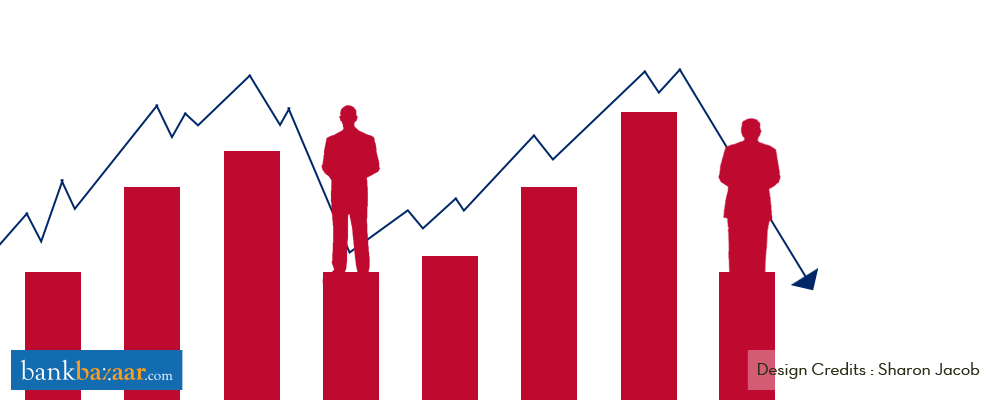
There’s a good chance that you haven’t come across the Presidential Election Cycle Theory in this lifetime. While images of Abraham Lincoln careening through the streets on a unicycle may pop into your head, this theory is anything but that.
In the 1900s, when entertainment was terribly scarce, a chap named Yale Hirsch developed a theory that stated that U.S stock markets were at their lowest ebb during the year immediately following the instalment of a new U.S president. The theory also stated that the stock markets start to show an improvement during the subsequent years of the new president’s term, with the cycle then repeating itself as the next election rolls in.
Stock market not your thing? How about Mutual Funds?
Even though this theory proved to be quite accurate early on, it started to take something of a beating towards the end of the twentieth century, with markets showing strong performances following both George Bush and Bill Clinton’s presidential terms. And the trend seems to have continued after Donald Trump’s surprise victory in the recently concluded presidential elections with markets posting their best closing weeks since 2011. Kind of makes you wonder if Mr. Kirsch had any other hobbies considering his theory didn’t exactly turn out as expected.
However, over time, stock market investors started using this theory as a basis for timing their investments and began formulating investment plans and strategies around it. While it would certainly be foolhardy to base your investments solely on how an election pans out, past data has revealed that there might have been something to it.
According to this theory, each year of a new president’s term can be tied in to the performance of the stock markets. Let’s get right down to the marrow and break it down.
- Year 1
The Presidential Election Cycle Theory states that during the first year of a new president’s term, he diverts focus off his concluded presidential campaign and towards making sure that he actually accomplishes everything he said he’d do during his campaign. This is the reasoning behind why the stock markets will be at their frailest during the new president’s first year. Many expected this exact scenario to play out following Trump’s recent victory, but the markets have confounded analysts by doing exactly the opposite.
- Year 2
As per the theory, the second year practically mirrors the first since the president elect is still running from pillar to post to tick off everything he promised to do during his election campaign. His focus is solely on amending existing tax laws and generally being on his best behaviour. Due to this, the stock markets are still in a state of general ‘feebleness’.
- Year 3
With elections coming up, year three sees the president pull out all the stops in a bid to boost the economy. This results in a stock-market surge, making it the most productive year as far as investors are concerned.
- Year 4
The president focuses solely on economic reforms and employment in a bid to build on the previous year. And with the upcoming elections on the horizon, the investors stand to benefit the most as the markets continue their upward surge and generally maintain high performance levels.
While this might seem fairly logical, it certainly isn’t entirely accurate, as with just about any investment strategy. Any investor worth his or her salt certainly wouldn’t base their investment plans solely on the Presidential Election Cycle. While this theory may certainly play a part in influencing stock market performance, it is ultimately just one of many reasons the markets behave the way they do following the conclusion of an election.
Drawbacks of the Presidential Election Cycle Theory
No theory is bulletproof, especially if it has to do with predicting stock market performances. This is exactly why it is extremely important to take into consideration the drawbacks as well as the positives that this theory has to offer.
- Reliability – This theory has thrown up something of a conundrum over the last few presidential terms, since the markets haven’t behaved as expected. Many analysts believed that Trump’s victory would signal the beginning of a dip in market performance. However, things didn’t exactly turn out that way, throwing more doubt on whether this theory can be relied upon. While a certain pattern may have emerged in the past that linked dips in market performance with the election of a new president, recent data has proven this to be the opposite.
- Scope of control – To put it in simple terms, a new president simply does not have enough clout to significantly influence stock market performance. Sure, there may be SOME influence based on policy changes and economic reforms, but at the end of the day, it simply isn’t enough to base an entire investment strategy on. Most data gleaned by the Presidential Election Cycle Theory takes into consideration the average performance of each year of each president’s term. In that sense, it’s probably safe to say that some presidents in yesteryears have had a larger influence than others, skewing the data to a fair degree.
Additional Reading: 5 Financial Lessons You Can Learn From Donald Trump’s Presidential Victory
In conclusion, while this theory may exhibit certain useful traits based on past data, it should not be used as a barometer for predicting stock market performance. In fact, you’d probably get about the same odds on Trump’s toupee influencing the outcome of a sumo wrestling match in Tokyo.